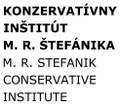

According to Carl Menger, the founder of Austrian Economics, money started out as a product of spontaneous evolution, that is, as a result of human action but not of human design.
According to his theory, would-be traders, encountering the limitations of barter, experiment with indirect exchange, offering to trade for goods they don’t ultimately desire, in the hope that those goods will turn out to be more readily saleable than whatever they started out with. By undertaking these experiments, traders unintentionally enhance the “saleability” of those goods they experiment with, widening the market for them, if only slightly. In consequence other traders become more inclined to try exchanging with the same goods. Over time certain goods become increasingly popular exchange media, while others drop out contention—or never enter it. The process ends when one good becomes universally accepted in exchange.
So money can evolve spontaneously. But will money that evolves this way be the best possible money? If, as many economists claim, the best possible money is an “intrinsically worthless” fiat money regulated by government authorities—that is, a money having no non-monetary usefulness whatever—then the answer is “no.” In fact, fiat money is the one type of money than can’t evolve spontaneously. For even if there were such a thing as fiat money in a pre-monetary “state of nature,” no one would want it. Consequently no one would be foolish enough to gamble on its being more readily saleable than some—indeed, any—commodity. Even ice cream would be a better choice. But suppose the very best money is in fact some sort of commodity money. Will Menger’s evolutionary forces favor it? Menger himself did not claim that they would. The evolutionary process he described leaves much to chance, after all: every trader starts by guessing what it is that other traders (and especially those having some desired good) want. No one is thinking about choosing an efficient money. Of course highly inconvenient goods, like ice cream, would probably be passed by, because the cost of holding them would outweigh whatever superior popularity they might command. Only a fool would gamble on something so perishable. Other goods posing obvious problems of storage, divisibility, uniformity, and such, would likewise tend to be passed by. Those goods least fit to serve as exchange media would almost certainly not survive the process.
But this could still leave a long list of contenders, including some that could prove far from ideal once generally adopted as money. For proof, consider the long list of commodities, from salt and tobacco to wampum and bird feathers, actually used as money in past societies, and consider, for instance, how a tobacco blight would play havoc with an economy wedded to tobacco standard.
Must we conclude, then, that market forces can’t be counted on to generate sound money? Not necessarily, for Menger’s theory only tells of the first, crucial stages of the evolutionary process. If, as evidence supporting that theory suggests, different monies emerge independently in different places, then those economies that “select” more efficient monies will tend, other things equal, to grow faster. The expansion of trade will in turn cause formerly isolated economies to merge, bringing Mengerian forces to bear once again, in a manner favoring the monies of “bigger” trading partners over those used by their smaller rivals. Thus competition and trade, working together, will tend eventually to weed out the worst monies, while letting the fittest survive.
So will the best conceivable commodity money win out after all? Alas, not necessarily: the best commodity might not have been among those that evolved into money in the first place; and, even if it was among them, it might eventually lose-out to an inferior money that happened to have been chosen in an economy that was big to begin with. Finally, an economy may find itself “locked” into a standard which, though originally efficient, has ceased to be so. Such inefficient outcomes are fully consistent with Menger’s theory. And what about gold, the commodity money that actually came to rule the roost? Was it an example of such an unfortunate outcome—or was it in fact the best of the best? Answering that question means assessing each and every alternative commodity standard—a hefty counterfactual exercise! Menger’s theory only allows us to conclude that gold was, if not the best, then at least not one of the worst options. And that, in retrospect, may be enough to recommend it.
George A. Selgin is a Professor of Economics at the University of Georgia, USA.
George A. Selgin will be our guest and present his lecture at the Conservative Economic Quarterly Lecture Series (CEQLS) to be held by the Conservative Institute of M. R. ©tefánik in Bratislava on May 13, 2013 and in Ko¹ice on May 14, 2013. More information is available here.
Article was published in Slovak language in Conservative Letters 04/2013, a newsletter of the Conservative Institute.